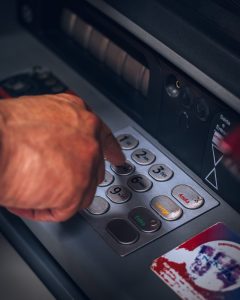Leverage is a tool that is commonly used in the forex market. It allows traders to control a larger amount of capital than they actually have. This is achieved by borrowing money from a broker to increase the size of their position. While leverage can be advantageous, it can also be detrimental to inexperienced traders. In this article, we will discuss how leverage can hurt you in forex.
What is leverage?
Leverage is a mechanism that allows traders to open positions that are larger than their account balance. For example, if a trader has $1,000 in their account and a leverage ratio of 1:100, they can open a position worth $100,000. The amount of leverage offered by brokers varies, but it can be as high as 1:500.
How does leverage work?
Leverage works by borrowing capital from a broker. The broker provides the trader with the additional funds required to open a larger position. This is known as a margin account. The margin is the amount of money that the trader needs to have in their account to open a position. The margin requirement varies depending on the leverage ratio and the currency pair being traded.
Why does leverage hurt me?
While leverage can increase profits, it can also increase losses. The higher the leverage, the greater the risk of losing your investment. Here are some of the ways that leverage can hurt you in forex trading.
1. Increased risk
Leverage increases the risk of your investment. The larger the position you open, the greater the potential loss. If the market moves against you, you could lose more than your initial investment. This is known as a margin call. A margin call occurs when the account balance falls below the margin requirement. If you cannot meet the margin call, the broker will close your position, and you will lose your investment.
2. Emotional trading
Leverage can cause traders to become emotional when trading. When a trader has a large position open, they may become anxious or stressed. This can lead to impulsive decisions and emotional trading. Emotional trading can result in poor decision-making and can lead to losses.
3. Lack of experience
Leverage can be dangerous for inexperienced traders. New traders may not understand the risks associated with leverage and may open positions that are too large. This can result in significant losses. It is essential to have a solid understanding of leverage, risk management, and trading strategies before using leverage.
4. High fees
Leverage comes with high fees. Brokers charge interest on the borrowed funds, which can eat into profits. The interest rates vary depending on the broker and the currency pair being traded. Additionally, brokers may charge other fees such as spread, commission, and swap fees.
5. Overtrading
Leverage can lead to overtrading. Traders may open too many positions at once, leading to increased risk and potential losses. Overtrading can also lead to emotional trading and poor decision-making.
Conclusion
Leverage can be a useful tool in forex trading, but it can also be dangerous. It is essential to have a solid understanding of leverage, risk management, and trading strategies before using leverage. Traders should also be aware of the risks associated with leverage, including increased risk, emotional trading, lack of experience, high fees, and overtrading. By understanding the risks associated with leverage, traders can minimize their losses and increase their chances of success.






